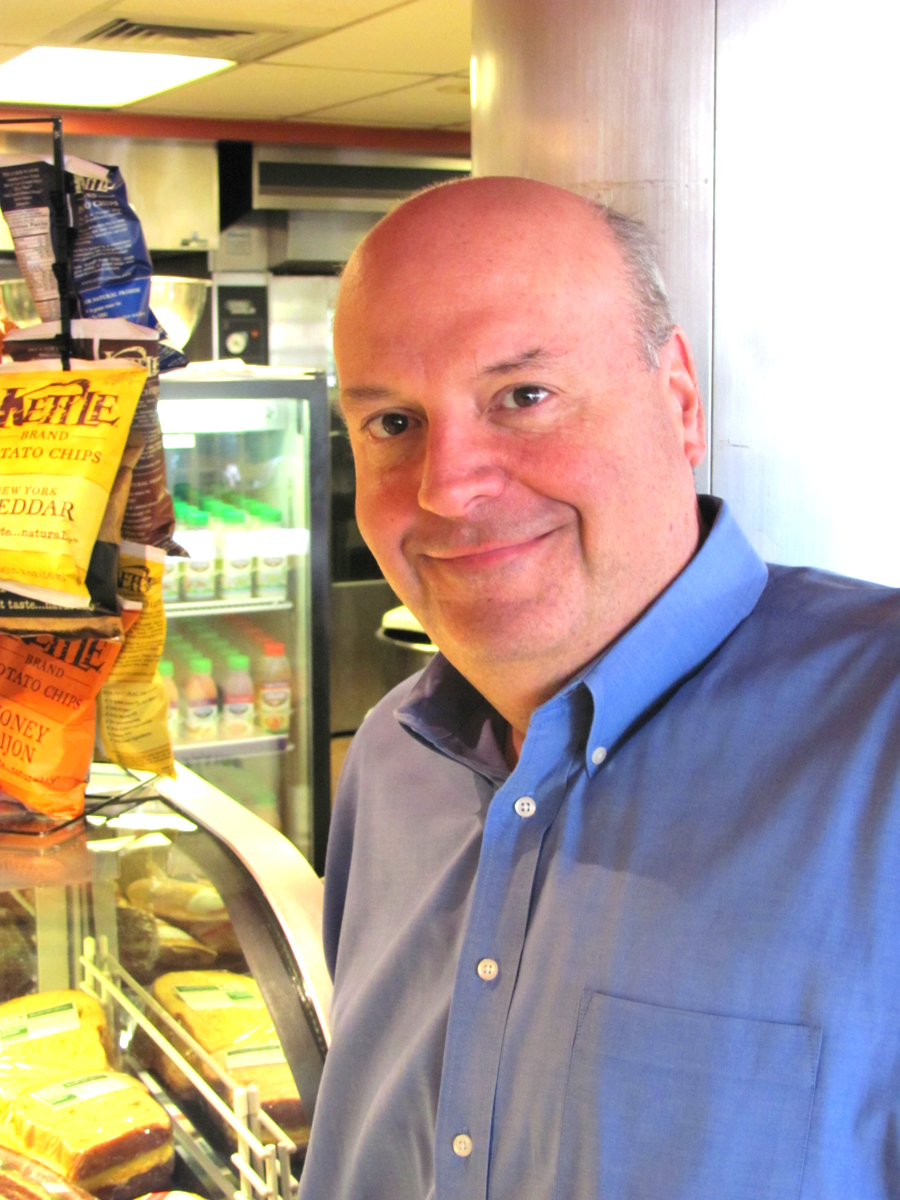Story by Melissa Adele Haskin
Photos by Jessica Ferguson
The EMU Director of Food Services Allen Faigin offered me coffee twice during the course of our interview, an act of hospitality that revealed the man’s obvious sincerity and benevolence. They are traits that will serve Faigin well as he leads the Ethos Cinco de Mayo cooking class this Thursday from 5—7 p.m.
During the hands-on lesson, students will learn how to make four separate dishes: cornflower pancakes, tortillas with salsa, fried plantains, and chilled sweet drinks. Faigin, who has been cooking professionally for twenty-five years, specially designed the menu, relying on his experience managing Hilton hotels in Mexico to provide participants an authentic Cinco de Mayo meal. Faigin sat down with Ethos to discuss the upcoming event.
Melissa Haskin: I noticed that you have an interesting background. You’ve done catering for the Olympics and the World Cup?
Allen Faigin: That’s true. I was hired by one of my two mentors in New York in the late 1980s, which seems so long ago, and by good fortune it worked out that we were selected to organize and manage corporate catering at the Olympic games in Calgary, Canada; Albertville, France; and Barcelona, Spain. Also, for all nine World Cup venues here in the United Stated in 1994. It was very exciting and there’s nothing like going to an Olympic game or the World Cup. The atmosphere of either are very different from one another, but it’s really remarkable to see nations come together with such fervor and respect for one another.
MH: Did you meet anyone interesting?
AF: Well you know most of the time you don’t do a lot of that. I’m dating myself by saying I met Princess Stephanie of Monaco. I met her in Calgary in 1988. Also, I cooked for the Soviet Bloc delegates.
MH: Do you come from a food background?
AF: I cook a lot at home. Plus, I’m a trained chef. I went to California Culinary Academy in San Francisco, so most of my career has been cooking.
MH: How did you pick the menu for this event?
AF: Since it’s Cinco de Mayo it seemed natural to do something that is Latin or Hispanic. This is a little more varied. It’s food from El Salvador and food from Mexico. It’s rather south of the border and north of Uruguay.
MH: I was looking at some of it, and the first thing on the list is corn…
AF: Oh, we’re going to make papusas with corn masa. They’re the national snack food, if not the national indigenous food of El Salvador. They’re served all times of the day.
Basically it is the same material that you make tortillas from. It’s just ground corn and then you add water and if you like a little salt to get it to a dough consistency like a play-dough and then you make a bowl and you hollow out the bowl with your fingers. You fill it with chicharrón–fried pork rinds chopped up. Then you put in some cheese and loroco, which we won’t be able to get. It’s an herb that they use and you pat it out in your hands and it’s kind of classic to hear this sound [claps hands together in an up and down motion]. Then you griddle the whole thing and serve it with curtido, which we’ll make. Then there’s tomato sauce, which is a very thin almost like a broth.
It’s not a knife and fork thing. You just tear a piece off and grab some curtido and eat it. It’s really crunchy and hot and yummy and inexpensive and good.
MH: And it doesn’t change throughout the day?
AF: No. It’s not like it has cinnamon and sugar in the morning. It’s always what it is. I’d like to think you could have a little more diversity in the fillings but traditionally no.
MH: There’s a $12 fee for the event. What does that cover?
AF: We’ll be making food and eating it. You get to eat.
MH: That’s good.
AF: Oh absolutely.
MH: And what is it that you want students to get out of an event like this?
AF: Well, one of the reasons we started this was because I miss working in the kitchen. We don’t do a lot of varied cuisines here, at least not typically. And it was an opportunity to provide lifelong learning experiences. I’ve seen a lot of students just in this brief time (I only started to work here in July) develop a sense of confidence in their abilities.
MH: Do you have any advice as far as eating goes for students on a budget?
AF: That’s a difficult question. I think it’s very easy to cook satisfying and tasty food at a reasonable price. It’s just a matter of shopping cleverly and allowing your imagination to take over as you go through the aisles of the market.








